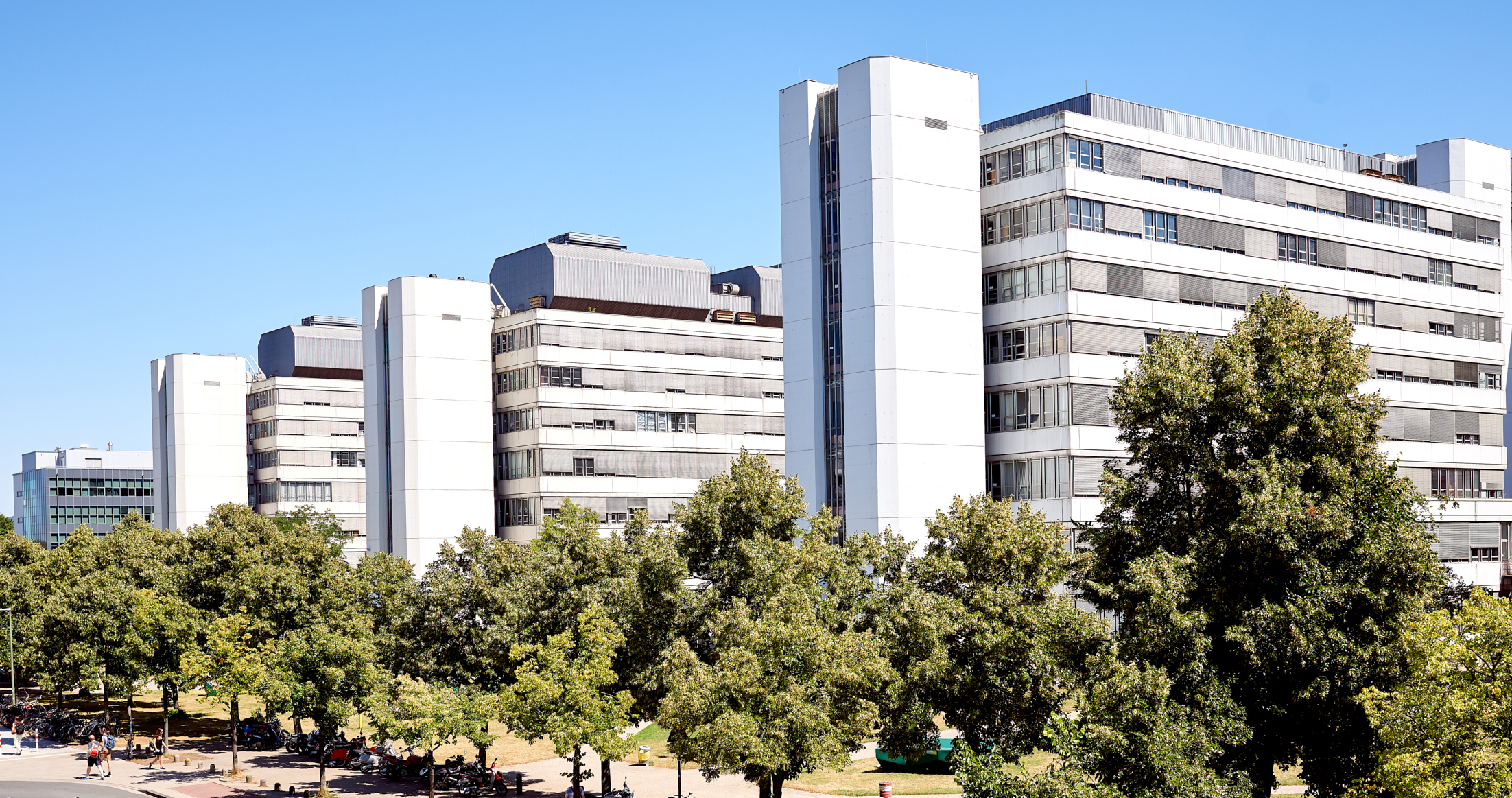
The Faculty of Physics has the following job opening in the "Cosmology Working Group":

Research position (PhD student) in the field of cosmology
ID: Wiss25096
- starting: 01.10.2025
- part-time 65 %
- salary according to Remuneration level 13 TV-L
- fixed-term
The Cosmology and Astroparticle Physics group investigates the formation and evolution of large-scale structures in the Universe, the nature of dark matter and dark energy, and the physics of the early Universe. We use theoretical, statistical and numerical tools in combination with observational data from optical and radio surveys such as Euclid, LOFAR and SKA.
The distribution of galaxies and the underlying matter (observed by the weak gravitational lensing effect) studied by the Euclid space telescope will provide unique insights into the history and composition of our Universe. As part of the ERC project "Probing cosmic large-scale structure beyond the average", the PhD project focuses on the development of methods to extract fundamental physical data beyond two-point statistics. These are crucial to extract non-Gaussian information missing in the standard two-point statistics and thus maximise the scientific return of current and future galaxy surveys. In particular, our group is working on one-point statistics and density-dependent statistics for the distribution of galaxies and the underlying matter.
You will contribute to an active and positive research culture in the group, for example by supporting Master's and Bachelor's students in their research (10%).
Employment is conducive to academic qualification.
The distribution of galaxies and the underlying matter (observed by the weak gravitational lensing effect) studied by the Euclid space telescope will provide unique insights into the history and composition of our Universe. As part of the ERC project "Probing cosmic large-scale structure beyond the average", the PhD project focuses on the development of methods to extract fundamental physical data beyond two-point statistics. These are crucial to extract non-Gaussian information missing in the standard two-point statistics and thus maximise the scientific return of current and future galaxy surveys. In particular, our group is working on one-point statistics and density-dependent statistics for the distribution of galaxies and the underlying matter.
Your Tasks
You will extend existing theoretical methods with new physical effects and incorporate systematics relevant to observational data, validate predictions with simulated data and perform analyses of simulated and real observational data. You will conduct research independently and in co-operation with small international teams and large collaborations and present your results in scientific publications and at conferences (90 %).You will contribute to an active and positive research culture in the group, for example by supporting Master's and Bachelor's students in their research (10%).
Employment is conducive to academic qualification.
Your Profile
We expect
- completed scientific university degree (Master's degree or equivalent) in physics, astronomy or a related subject
- good written and spoken English skills
- ability to collaborate and work in a team
- independent, autonomous and organised way of working
Preferred experience and skills
- knowledge of cosmology and astrophysics
- knowledge of the large-scale structure of the universe
- experience in programming (Python, C++, etc.)
- experience with data analysis
We offer
- salary according to Remuneration level 13 TV-L
- fixed-term (3 years) (§ 2 (1) sentence 1 of the WissZeitVG; in accordance with the provisions of the WissZeitVG and the Agreement on Satisfactory Conditions of Employment, the length of contract may differ in individual cases)
- part-time 65 %
- internal and external training opportunities
- variety of health, wellbeing and counselling services
- reconcilability of family and working life
- flexible working hours
- good transport connection
- collegial working environment
- open and pleasant working atmosphere
- exciting, varied tasks
Application Procedure
We are looking forward to receiving your application. To apply, please preferably use our online form via the application button below.
application deadline: 18.04.2025
Contact
Prof. Dr. Cora Uhlemann
cuhlemann@physik.uni-bielefeld.de
Postal Address
Universität Bielefeld
Fakultät für Physik
Susi v. Reder
Universitätsstraße 25
33615 Bielefeld
Prof. Dr. Cora Uhlemann
cuhlemann@physik.uni-bielefeld.de
Postal Address
Universität Bielefeld
Fakultät für Physik
Susi v. Reder
Universitätsstraße 25
33615 Bielefeld


